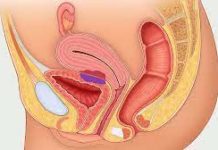Kidney stones (also known as renal calculi, nephrolithiasis, or urolithiasis) are mineral and salt deposits that grow inside your kidneys. Kidney stones can be caused by a variety of factors, including diet, excess body weight, certain medical conditions, and certain supplements and drugs. From your kidneys to your bladder, kidney stones can harm any component of your urinary tract. When urine becomes concentrated, minerals crystallise and bind together, resulting in stones.
Kidney stones can be quite painful to pass, but if caught early enough, they usually do not cause permanent damage. To clear a kidney stone, you may only need to take pain medication and drink plenty of water, depending on your circumstances. Surgery may be required in some cases, such as when stones become trapped in the urinary tract, are connected with a urinary infection, or create problems. If you’re at an elevated risk of recurrent kidney stones, your doctor may offer preventive treatment to lower your risk. Click here to view our blog on pilates.
SYMPTOMS OF KIDNEY STONES
A kidney stone normally does not produce symptoms until it travels about inside your kidney or passes into your ureters, which are the tubes that link your kidneys and bladder. If it becomes lodged in the ureters, it can obstruct urine flow and cause the kidney to enlarge and the ureter to spasm, both of which can be quite painful. You may experience the following indications and symptoms at that time:
- Pain in the side and back, just below the ribs, is severe and intense.
- Pain in the lower abdomen and groin that radiates
- Waves of pain with varying levels of severity
- While urinating, you may experience pain or a burning sensation.
Other signs and symptoms to look out for include:
- Urine can be pink, crimson, or brown in color.
- Urine that is cloudy or smells bad
- Urinating frequently or in little amounts, or urinating more frequently than normal
- Puking and nausea
- If you have a fever and chills, you may have an infection.
As a kidney stone passes through your urinary tract, the pain it causes may alter — for example, migrating to a new spot or rising in intensity.
CAUSES OF KIDNEY STONES
Drinking too little water, exercising too much or too little, obesity, weight loss surgery, or eating foods high in salt or sugar are all possible reasons. Infections and family history may play a role in some people’s health. A high fructose diet is linked to a higher risk of kidney stone formation. Although various variables may increase your risk of kidney stones, there is rarely a single cause. Kidney stones grow when your urine contains more crystal-forming substances than the fluid in your urine can dilute, such as calcium, oxalate, and uric acid. At the same time, your urine may be deficient in chemicals that prevent crystals from sticking together, allowing kidney stones to form.
TYPES OF KIDNEY STONES
Calcium Stones
Calcium stones, mainly in the form of calcium oxalate, make up the majority of kidney stones. Oxalate is a chemical produced by your liver on a daily basis or absorbed through your diet. The oxalate content of certain fruits and vegetables, as well as nuts and chocolate, is high.
Calcium and oxalate concentrations in urine can be increased by dietary variables, high vitamin D doses, intestinal bypass surgery, and a variety of metabolic diseases.
Calcium phosphate stones are another type of calcium stone. Metabolic disorders, such as renal tubular acidosis, are more likely to cause this form of stone. It’s also possible that certain migraine or seizure drugs, such as topiramate, are linked to it (Topamax, Trokendi XR, Qudexy XR).
Struvite Stones
A urinary tract infection causes struvite stones to develop. These stones can develop quickly and become quite large, often without causing any symptoms or warning.
Uric Acid Stones
A urinary tract infection causes struvite stones to develop. These stones can develop quickly and become quite large, often without causing any symptoms or warning.
Cystine Stones
These stones arise in persons who have cystinuria, a hereditary condition in which the kidneys discharge too much of a certain amino acid.




